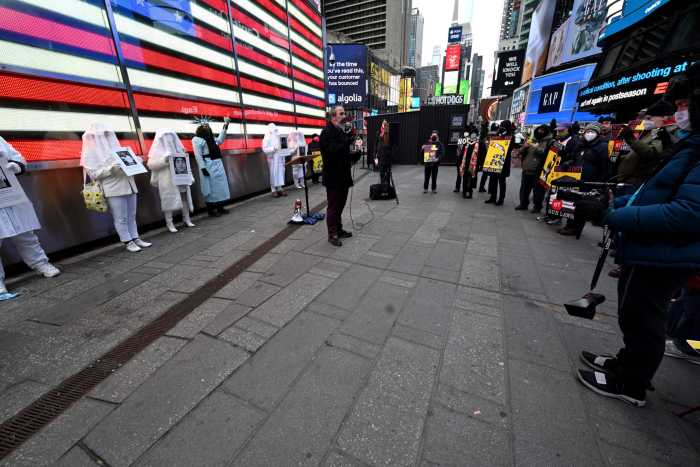A three-judge panel of the Richmond, Virginia-based US Court of Appeals for the Fourth Circuit ruled on August 16 that people with a gender dysphoria diagnosis are considered to have a “disability” that entitles them to protection against discrimination under two federal statutes, the Americans with Disabilities Act (ADA) and the Vocational Rehabilitation Act. The 2-1 decision is the first in which a federal appeals court has found such individuals to be entitled to protection under those two laws.
The Rehabilitation Act, passed in 1973, forbids discrimination in federal programs, by large federal contractors, or in programs or activities that receive federal financial assistance, against qualified individuals with a disability. The ADA, passed in 1990, forbids discrimination by employers, by public entities (including public transportation), by public accommodations and commercial facilities, or in telecommunications, against qualified individuals with a disability. Both statutes cover physical and mental disabilities.
Transgender people generally won protection against discrimination by employers under Title VII of the Civil Rights Act of 1964 when the Supreme Court ruled in Bostock v. Clayton County (2020) that the ban on discrimination because of sex in Title VII must be interpreted to include discrimination because of transgender status. However, that ruling applies only to employment by entities with at least fifteen employees. When Congress amended the civil rights bill in 1964 to add “sex” to the list of prohibited grounds for discrimination, it did not also add “sex” to other provisions of the civil rights bill — most significantly the public accommodations provision — so until the Fourth Circuit’s August 16 ruling, there was no federal protection against discrimination in public accommodations and services for transgender people.
When the ADA was pending in Congress, Senators Jesse Helms and William Armstrong, outspoken opponents of LGBTQ rights, criticized the measure as a “gay rights bill,” arguing that “homosexuals,” “transvestites,” and “transsexuals” could claim that they had a mental disability and sue for discrimination under the proposed ADA. To prevent protection for people whom they disapproved, they successfully proposed an amendment that excluded from the definition of disability “transvestism, transsexualism, pedophilia, exhibitionism, voyeurism, gender identity disorders not resulting from physical impairments, [and] other sexual behavior disorders” as well as “compulsive gambling, kleptomania, pyromania, or psychoactive substance use disorders resulting from current illegal use of drugs.” Federal trial courts, until relatively recently, have interpreted this provision to preclude protection under the ADA or the Rehabilitation Act for transgender individuals.
In Kesha Williams v. Stacey Kincaid, the August 16 ruling, the trial court relied on the ADA exclusion language to dismiss claims by a transgender former inmate of a Virginia jail that she had been subjected to unlawful disability discrimination while incarcerated, because of her gender dysphoria. The trial judge, Claude M. Hilton of the Eastern District of Virginia, concluded that Congress intended to withhold protection from transgender people, which would include those suffering from gender dysphoria. He also rejected gross negligence claims against two of the three named defendants, the sheriff in charge of the jail, and two jail employees.
Two of the three circuit judges disagreed with Judge Hilton. Pointing to the Bostock decision, in which Justice Neil Gorsuch wrote that statutes should be interpreted in light of the common meaning of their language at the time the legislation was enacted, Circuit Judge Diana Gribbon Motz observed that the term “gender dysphoria” was not in use in 1990, and that the American Psychiatric Association, in the 2013 edition of its Diagnostic and Statistical Manual (DSM-5), had removed “gender identity disorders” as a listed diagnostic term, and had adopted the new term of “gender dysphoria.” The court reasoned that this change was not just a case of renaming the same thing, but rather of recognizing a new “independent diagnosis” for a specific condition. This resulted from “advances in medical understanding.”
“The very fact of revision suggests a meaningful difference,” wrote the judge, “and the contrast between the definitions of the two terms — gender identity disorder and gender dysphoria — confirms that these revisions are not just semantic.” Consequently, a majority of the panel ruled that a person with gender dysphoria — which the defendants did not dispute was an actual disability that was otherwise within the statutory definition — did not come within the exclusionary provision. As an alternative argument, they accepted Williams’ reliance on some scientific articles suggesting that gender identity has a physical basis and thus might be described as a gender identity disorder that results from a physical impairment.
The court also pointed out that a 2008 amendment to the ADA instructed that “courts construe the ADA in favor of maximum protection for those with disabilities, (so) we could not adopt an unnecessarily restrictive reading of the ADA.” And, added Judge Motz, reversing the district court’s dismissal based on this interpretation of the statute also avoided the need to rule on Williams’ contention that she had been denied Equal Protection of the law in violation of the 14th Amendment. Courts generally will consider whether ruling against the plaintiff would raise constitutional issues in determining how to interpret a statute.
The court also rejected District Judge Hilton’s conclusion that claims against two prison employees should be dismissed on statute of limitation grounds because they were only named in an amended complaint that was filed after the two-year statute of limitations had run. The court also reversed Judge Hilton’s dismissal of a gross negligence claim, finding, contrary to the trial judge, that Williams’ factual allegations were sufficient to meet the requirements of Virginia law for such a claim against the sheriff and one of the jail employees.
Dissenting, Judge A. Marvin Quattlebaum focused on similarities in the definitions of “gender identity disorders” and “gender identity” and argued that even if Williams was correct about “changes in understanding” by the medical profession since 1990, “linguistic drift cannot alter the meaning of words in the ACA when it was enacted.” He insisted that as of 1990, “the meaning of gender identity disorders included gender dysphoria as alleged by Williams.” He also disagreed with the majority of the panel on the gross negligence issue as it pertained to Sheriff Stacey Kincaid, the lead defendant.
The Fourth Circuit panel decision establishes a precedent for the federal courts in Maryland, Virginia, and North and South Carolina. However, it is possible that Judge Quattlebaum will call for a vote by the full circuit bench on whether to rehear the case “en banc,” or that the defendants could move for such a vote. A vote by a majority of the 14 active judges of the Circuit court to grant en banc review would vacate the panel decision and require reconsideration by the full Fourth Circuit bench. (There is one vacancy that Biden has not yet filled.) At present, eight of the 14 judges are Democratic appointees, including Judge Motz (Bill Clinton) and Judge Pamela Harris (Barack Obama), the other member of the majority. Dissenting Judge Quattlebaum was appointed by Donald Trump.
The defendants could also apply directly to the Supreme Court for review of this decision. The Supreme Court usually does not grant review unless there is a split among circuit courts about the legal issues in the case.



































